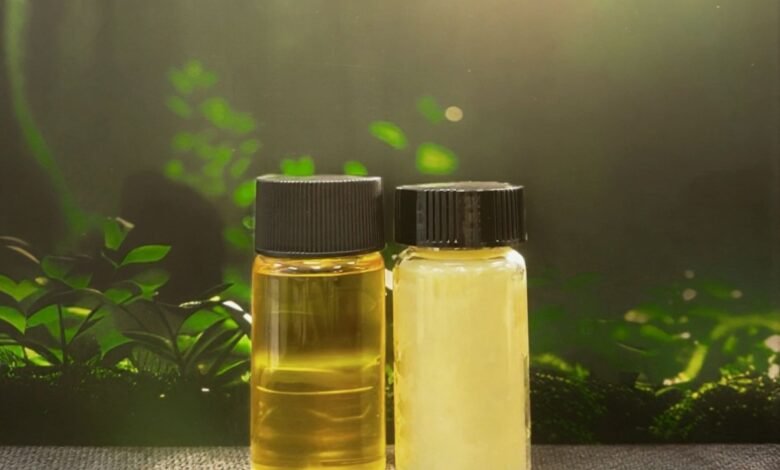
▼ Summary
– Shen Ming Lee started Terra Oleo to create sustainable alternatives to her family’s conventional palm oil business, aligning with her Gen Z values.
– The startup uses genetically engineered microbes to convert agricultural waste into high-value oils like cocoa butter and specialty oils for cosmetics and pharmaceuticals.
– Terra Oleo has raised $3.1 million in funding and is part of the Breakthrough Energy Fellows program to scale its technology.
– The company currently produces oils at a lab scale with high profit margins by avoiding costly refining processes required in traditional production.
– Replacing palm oil entirely is challenging due to its massive global production, so Terra Oleo aims to work with the industry for a gradual transition toward diversified oil sources.
While many young adults express rebellion through unconventional lifestyles or creative pursuits, Shen Ming Lee took a different path. She launched a company. Growing up within a family deeply entrenched in the conventional palm oil industry, Lee developed a complex relationship with her heritage. She admits feeling a sense of shame regarding the environmental impact associated with her family’s business. Palm oil, a remarkably versatile ingredient, appears in countless products ranging from snacks and cosmetics to pharmaceuticals and biofuels. However, its production has come at a steep ecological cost, driving widespread deforestation across tropical regions, particularly in Southeast Asia.
The idea for Terra Oleo began taking shape in 2022 when Lee connected with Boon Uranukul, an MIT doctoral candidate. Uranukul had pioneered the development of specialized microbes capable of converting agricultural waste into foundational components for plastics. Lee saw an opportunity to honor her family’s legacy while aligning with her own values as a sustainability-focused member of Gen Z. By combining Uranukul’s scientific expertise with her industry connections and strategic insight, they envisioned a new approach to oil production.
Operating from Singapore, Terra Oleo spent nearly two years refining its technology in stealth mode. The startup focuses on leveraging microbial fermentation to transform agricultural waste into various high-value oils. Recently, the company secured $3.1 million in funding from a consortium of investors including ADB Ventures, Better Bite Ventures, Elev8.vc, The Radical Fund, and a strategic corporate backer from the palm oil sector. Both Lee and Uranukul have also been selected for the current Breakthrough Energy Fellows program, underscoring the potential of their innovation.
Rather than attempting to replicate crude palm oil, a low-margin commodity, the team targeted higher-value derivatives. They identified specialty oils used in cosmetics and pharmaceuticals, such as cocoa butter equivalents, as ideal starting points. Using three carefully selected yeast strains, the company employs genetic and metabolic engineering to enhance the microbes’ natural ability to produce specific fats and triglycerides when fed organic waste streams.
At this stage, Terra Oleo remains in the lab, producing oil in gram quantities. The recent funding will support scaling up to kilogram-scale production. A significant advantage of their process is cost efficiency; because the microbes synthesize target molecules directly, expensive refining steps are eliminated. Lee notes that profit margins for some of these specialty oleochemicals can exceed 80%, far surpassing conventional production economics.
Replacing a significant portion of the global palm oil supply, which reached nearly 79 million metric tons last season, represents a monumental challenge. Lee acknowledges that a full transition will take time. Her vision is not to dismantle the existing industry but to collaborate with it, offering a sustainable alternative that diversifies production methods. By demonstrating a viable, eco-friendly path forward, Terra Oleo aims to inspire change from within, proving that innovation and environmental responsibility can go hand in hand.
(Source: TechCrunch)





